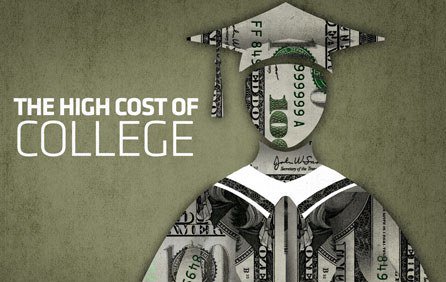
When choosing colleges to research and apply to, many students and families make the critical college admissions mistake of eliminating private universities because of their sticker price. Yes, private universities often have a higher sticker price than their public university counterparts. However, the actual cost to families is frequently the same or less than what you would pay at your local flagship public university.
The average discount at private universities was 48.6% in 2015. With an average yearly total cost sticker price of just less than $35,000, an education at the 725 private colleges ranked by US News frequently ends up as less expensive than public universities, especially when compared to out-of-state public universities.
Here’s the math: $35,000 minus 48.6% discount ($16,800) equals $18,200 in total cost on average for private universities. UT-Austin estimates their yearly total cost for Texas residents at $23-25,000, as does Texas A&M.  Neither of these schools will give middle class students a dime of aid, unless the student is an elite academic scholar. Many private universities will cost your family less than the flagship public universities in Texas, or your home state, and will provide many more valuable services.
Neither of these schools will give middle class students a dime of aid, unless the student is an elite academic scholar. Many private universities will cost your family less than the flagship public universities in Texas, or your home state, and will provide many more valuable services.
Popular out-of-state universities like the University of Colorado-Boulder, UCLA, and the University of Georgia are almost always more expensive than private universities. These schools give out minimal aid to middle class families and most families will pay 100% of the total cost. CU-Boulder estimates the out-of-state total cost at $50,469. UCLA costs over $60,000 per year for out-of-state students and Georgia estimates their non-resident total cost at $45,128. When compared to the average cost for a private university, these massive public universities are much more expensive.
Further, we must raise the question of value. If most of the classes your child attends have 150, 300, or more students and most tests are multiple choice, then what is the real quality of his or her coursework? If a college costs less money, but does much less to help your son or daughter grow and build skills and experiences that will positively impact their career prospects, then is that college providing a worthwhile return on your investment?

Good morning! I was referred to you by Becky Gore- Laroche. My daughter is a about to become a senior! I would like information on your programs for determining fields of study and college choice. I also believe my daughter has some anxiety with test taking and study habits. Can you please call me or send me some information? 832-540-5663
The website is fantastic. This site contains a great deal of useful information.